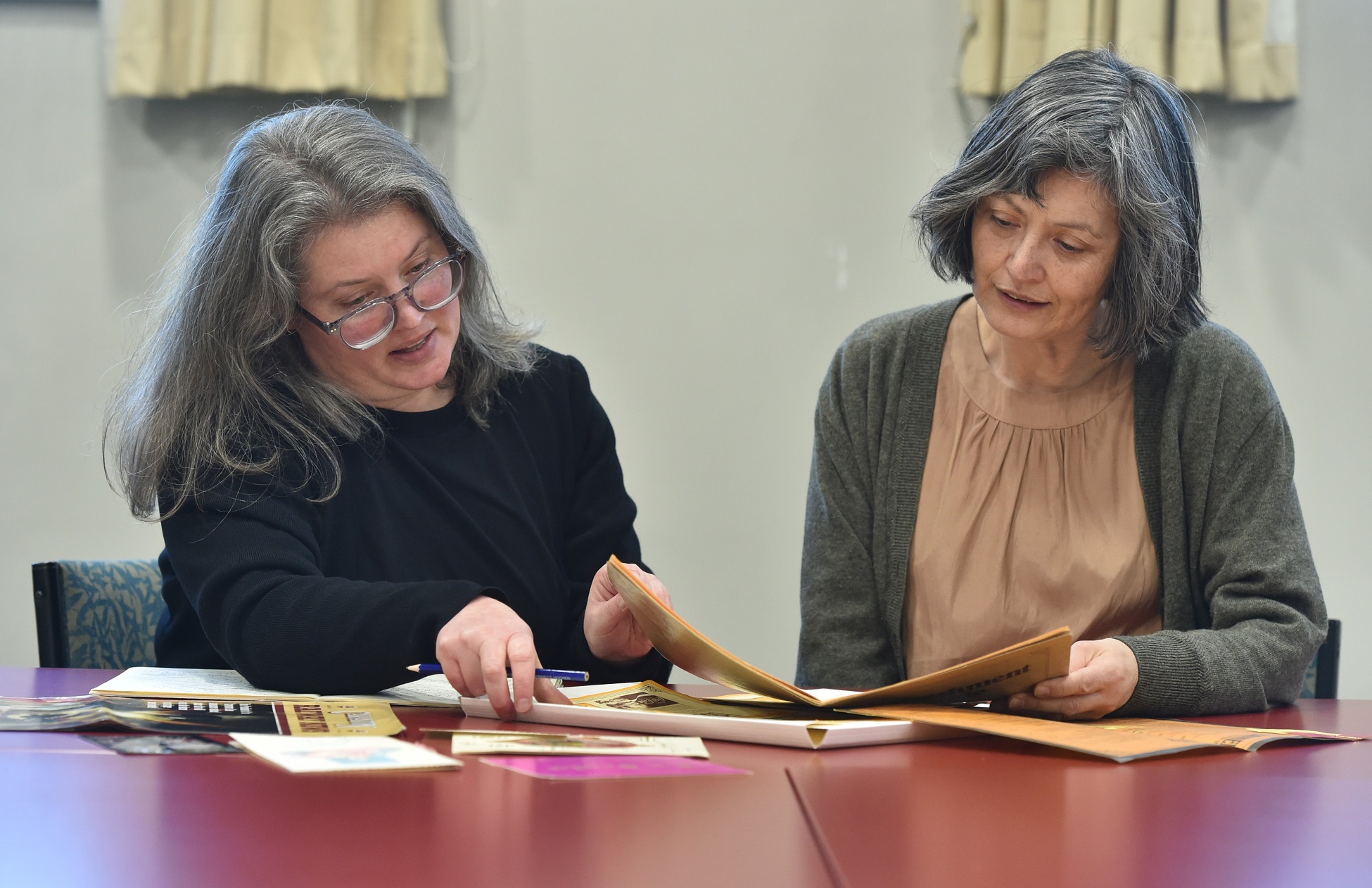
Remember the days of Dunedin eateries La Scala, August Moon or Big Daddy’s?
Award-winning playwright and former Robert Burns Fellow (2019), Emily Duncan is on the hunt for anyone with a direct connection with those venues as she seeks to find more personal stories about the venues and the people who worked in them.
Duncan set out to investigate Dunedin’s "impressively diverse" range of dining establishments from the 20th century including restaurants, cafes, tea rooms or takeaway shops as part of her Friends of Hocken Collection Award.
Each of these places represents the intersection of a dream or ambition, cultural identity and economic circumstance within the city, she says. They are places people have gathered to celebrate or commiserate significant personal or public events, to socialise, to experience different foods and beverages and sometimes music or other live performances.
"I don’t consider myself a foodie or anything but often people go to restaurants for occasions that are important to them. One place I do remember going to as a kid is Carnarvon Station. As a child it was incredible — they’ve got train carriages up here. How did this happen? At the same time not wanting to really know. It was such a special place to go."
Duncan’s aim is to draw from her research in establishments such as the Hocken and National Library, Heritage New Zealand and Dunedin City Libraries as well as any personal stories she finds to create a series of monologues which she and two actors will perform later this year.
"When writing drama you are not writing history or a Wikipedia page — it is that other space that maybe doesn’t always get picked up in standard histories."
She had the idea "knocking around" and it "stuck" with her and tied into her Phd research.
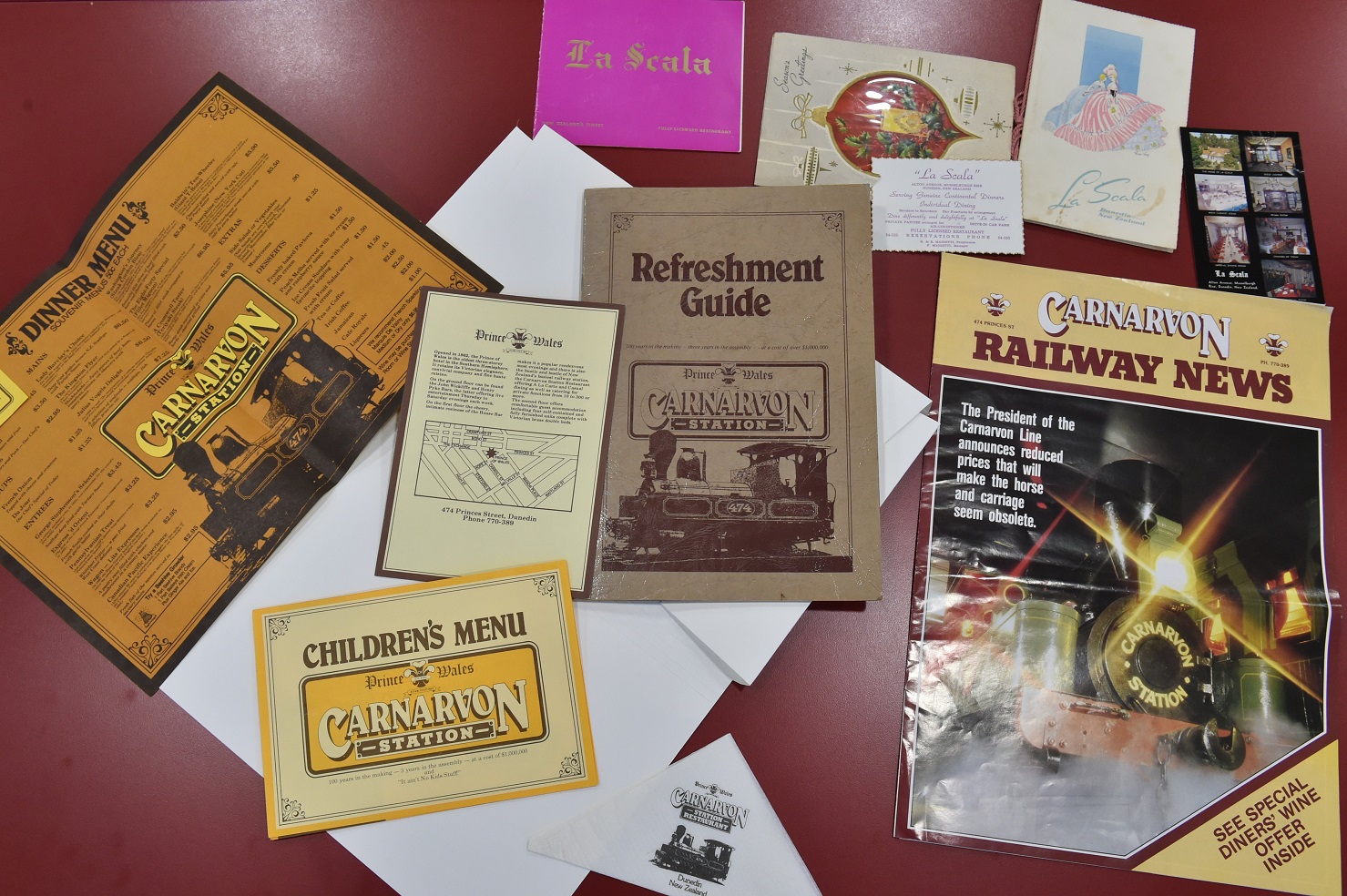
Duncan, co-founder of Prospect Park Productions, has also had an interest in looking at site and different buildings, how businesses have changed such as the former Hob Nob cafe downstairs in Princes St.
"That building is now taped off and in need of repair. It takes quite a stretch of imagination to see it as this social hub of the time."
The wide variety of Dunedin establishments meant she wanted some "wiggle room" in her proposal to allow her to follow whatever she found in the Hocken Collections.
"While I listed a number of establishments there has been some I haven’t found anything on and others where something has popped up out of the blue that is too good not to chase down."
One of those was a 1953 dinner by a club, that no longer exists, to celebrate the Queen’s Coronation.
"There’s an interesting parallel with the King’s Coronation this year and if the club still exists it’s very underground."
She had an idea that the National Library could hold a copy of the menu for that dinner but it said it did not, although it did hold the minutes for the club.
"It was this huge ledger with ... minutes written in fountain pen and they had stuck [in] all their menus from their meetings and bingo. They had one for this dinner including an autograph page of all those who attended. Finds like those are golden."
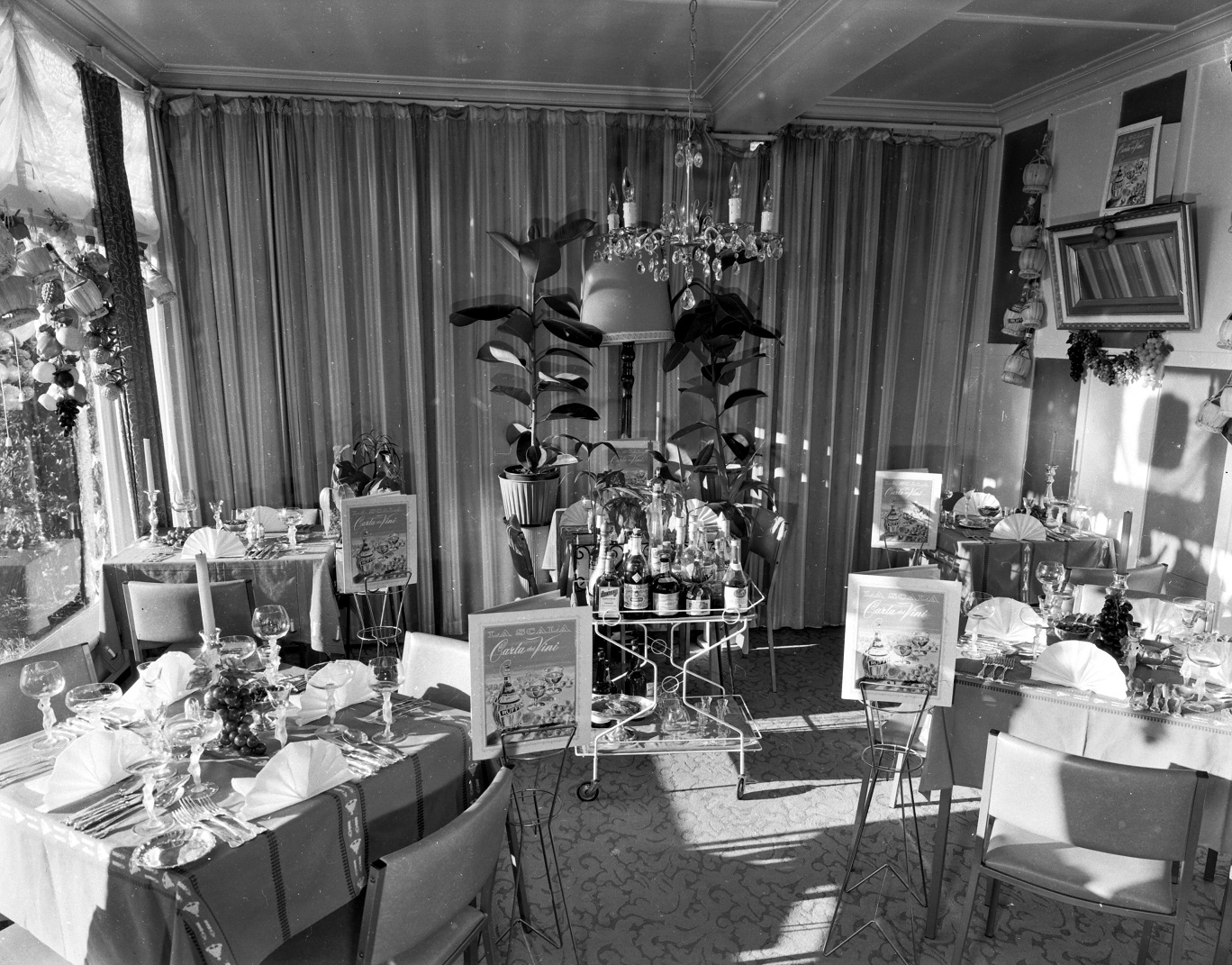
"Places like the Savoy lasted a lot longer. Then there was the Rio Grande in Princes St — it was really successful for a couple of years. The owner, Mr Pagonis, he owned several places over the years."
She was initially not going to look at the Savoy as it was so popular but then the Hocken bought a whole lot of glass plate negatives of the Savoy.
"Not only were they stunning, there were all these images of the kitchen and staff working in the kitchen and you don’t normally see that."
Many of the images she found of various restaurants were of different businesses having dinners at places such as the Savoy and La Scala rather than behind the scenes.
"I didn’t want it to be a series of monologues about people having different meals; I wanted a range of people, a range of roles."
She found she needed to whittle down her list of places to concentrate on just a few and her research led her to — La Scala (early-mid 1960s), August Moon (mid 1970s) and Big Daddy’s (late 1980s).
"I feel some ethical responsibility that if there are people directly connected to these places that they should have an opportunity to have input."
Looking into the history of La Scala she discovered that new liquor laws came in, allowing restaurants to sell wine and beer at the table within strict parameters such as it had to be table service. It took a huge amount of digging to find the date it got its liquor licence.
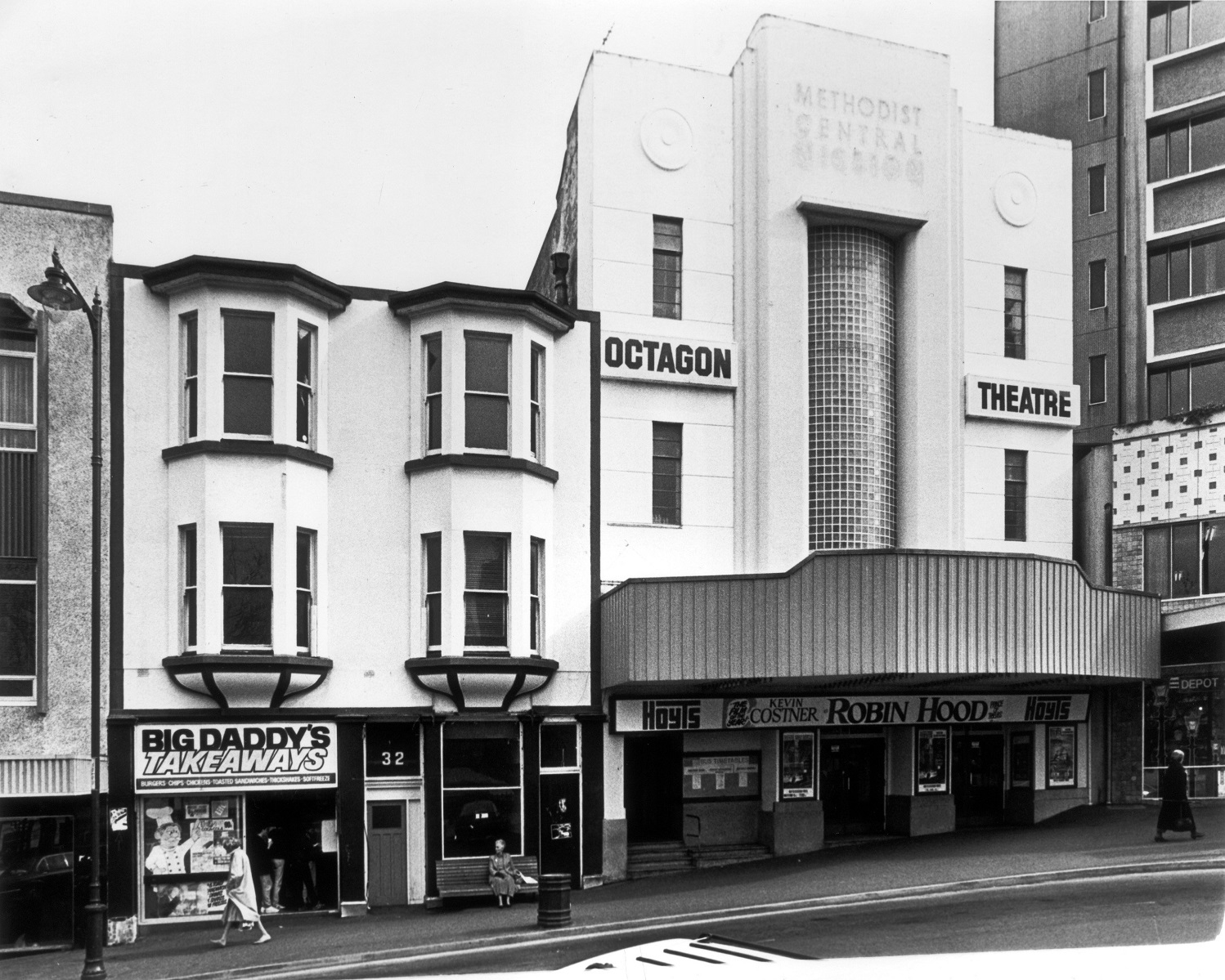
"How did restaurants work around meat rationing? That was quite interesting because you see all these different dishes that were served that I’ve never really seen. They might have gone out of vogue, but they served them to get around rationing restrictions."
From her research in old editions of the Otago Daily Times, Big Daddy’s was very popular with tourists in the 1970s as well as international students.
"A couple of people I talked to can remember it."
Finding images from the Moray Pl area of town rather than the Exchange area, which seemed to have been more photographed, became quite a challenge for Duncan such as finding evidence of an early restaurant-hotel. On the advice of a Hocken staff member, she looked at the fire maps from the late 1800s.
"Lo and behold there was the establishment."
That led to looking at old Stone’s Directories, which indexed businesses.
"There was an advertisement for this particular restaurant and a half-page photograph.
It was a bingo moment — it existed."
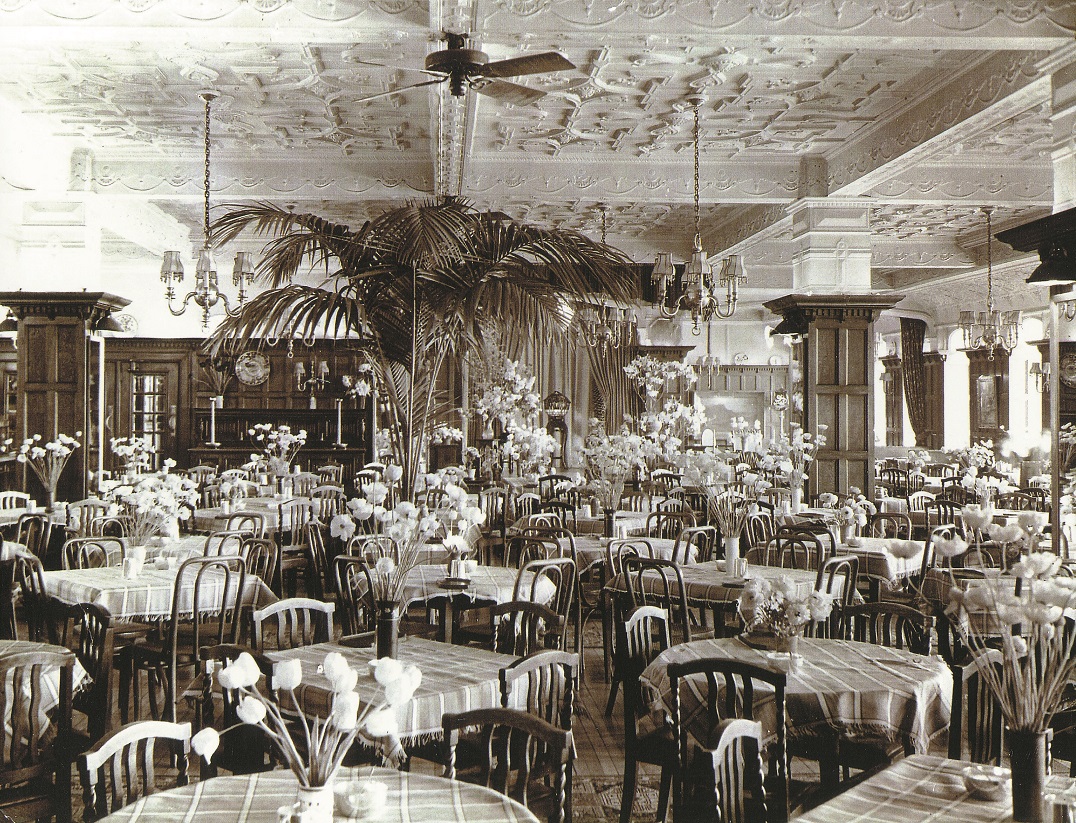
"It needs to be specifically focused — you’re not giving a lecture. What’s the world of this character in this time and place?"
With phase one of the research and writing completed, Duncan is turning her focus to workshopping the script with co-director and dramaturg Kim Morgan and actors Barbara Power and Phil Grieve.
"We’ll test things out, see what flies and what doesn’t. That gives me a good enough time to go back and revisit things before it is presented as a rehearsed public reading in the heritage festival."
Photographs and images will be projected on a screen related to the various establishments and "appropriate" music.
She hopes members of the audience will come along, not only to hear her work but to share some of their own stories just as you would when dining in public.
"A positive spin-off from this will be if it opens people’s eyes with what sort of materials are in the Hocken and how they might access them themselves."
To contact Duncan, email emily@prospectpark.co.nz
TO SEE:
Establishment, Emily Duncan, Ōtepoti Dunedin Southern Heritage Festival 2023, October 7, 2pm, seminar room, Hocken Collections












